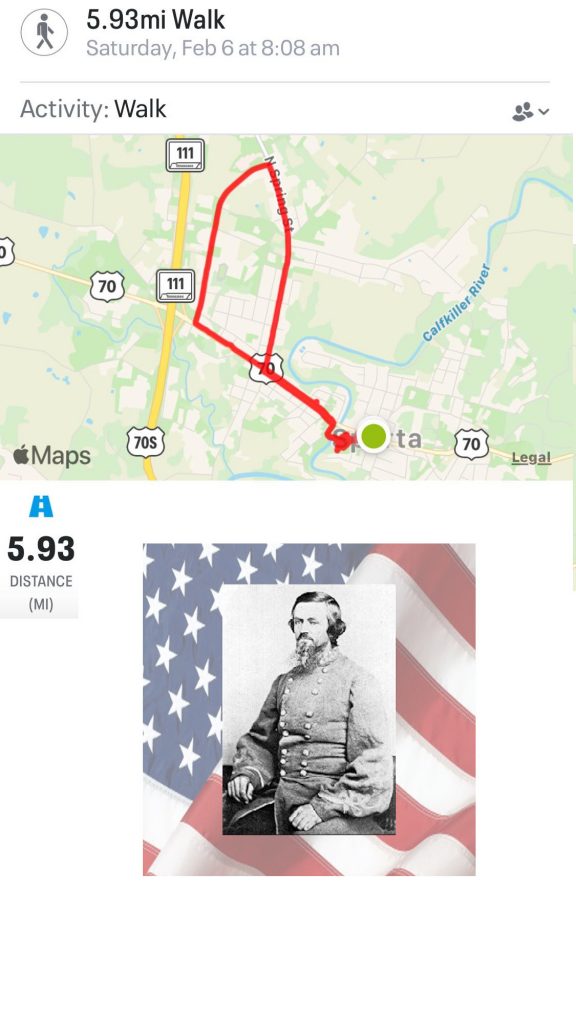My walk today was dedicated in honor of:
Civil War Confederate Brigadier General George Gibbs Dibrell, Age 66 of Sparta, TN.
Died May 9, 1888
Civil War Confederate Brigadier General, US Congressman. He was born in Sparta, Tennessee, where as a youth he worked on his father’s farm. He occasionally attended local schools and later graduated from East Tennessee College. At 18 he clerked in a branch office of the Bank of Tennessee and at 24 became a justice of the peace and a court clerk. Until the Civil War he was a successful merchant and state legislator. A Whig, he originally opposed secession but finally cast his lot with the Confederacy, enlisting as a Private in the 25th Tennessee Infantry and rising to Lieutenant Colonel by August 1861.
With the regiment he fought in such early battles in the West as Mill Springs and Farmington. When the Army of Tennessee was reorganized after Corinth, he failed to regain his former rank. Undaunted, he hastened to Richmond and receive authority to raise a regiment of his own. Returning to his hometown, he organized the 8th Tennessee Cavalry, training it as a partisan unit. The regiment, however, became a regular Confederate outfit under Brigadier General Nathan B. Forrest. As a Colonel he fought under the “Wizard of the Saddle” at Stone’s River, and on July 1, 1863, he succeeded to the command of Forrest’s original brigade. Still, he did not become a Brigadier General until January 28, 1865. In the spring of 1863 he saw action at Tuscumbia and Florence, Alabama, then during the Tullahoma Campaign. In May 1864, soon after joining the corps of Major General Joseph Wheeler for the Atlanta Campaign, his troopers repulsed a Union attack at Varnell’s Station and stampeded enemy cavalry at Rocky Face Gap. In these and other engagements, he fought well enough to prove his worthiness to succeed Forrest. Under Wheeler, he also served prominently in the Siege of Savannah, his horse being shot under him in one battle. Early in 1865, during the Carolinas Campaign, he skirmished incessantly with the Union troopers of Brigadier General H. Judson Kilpatrick. By now a division leader, he was warmly recommended for promotion, Wheeler calling him “a most excellent officer upon the field. You can hardly find a better or more reliable man.” In the waning days of the war, he joined the fugitive Jefferson Davis, who entrusted to his care the Confederate archives. After the Confederate President’s escort disbanded, he returned to Tennessee and resumed his business career with much success. He then became a financier, a coal mine developer, a railroad president, and from the years 1874 to 1884, a United States Congressman. Choosing not to run for reelection he returned home after his final term in Congress was over and lived his final 4 years on his farm.
He is buried in the Old Sparta Cemetery
We had an amazing 5.93 Mile walk in Sparta, Tn. Today. I want to thank my friends, Robert, Steve, and Sherry for walking with us today. I want to thank all those who honked, waved, and saluted in helping us honor this hero today. It was amazing. Today we walked to his grave at the Sold Sparta Cemetery and we also stopped in at the White County Heritage Museum and read some history on this hero. It was amazing.
Civil War Veteran George Gibbs Dibrell will not be forgotten !






